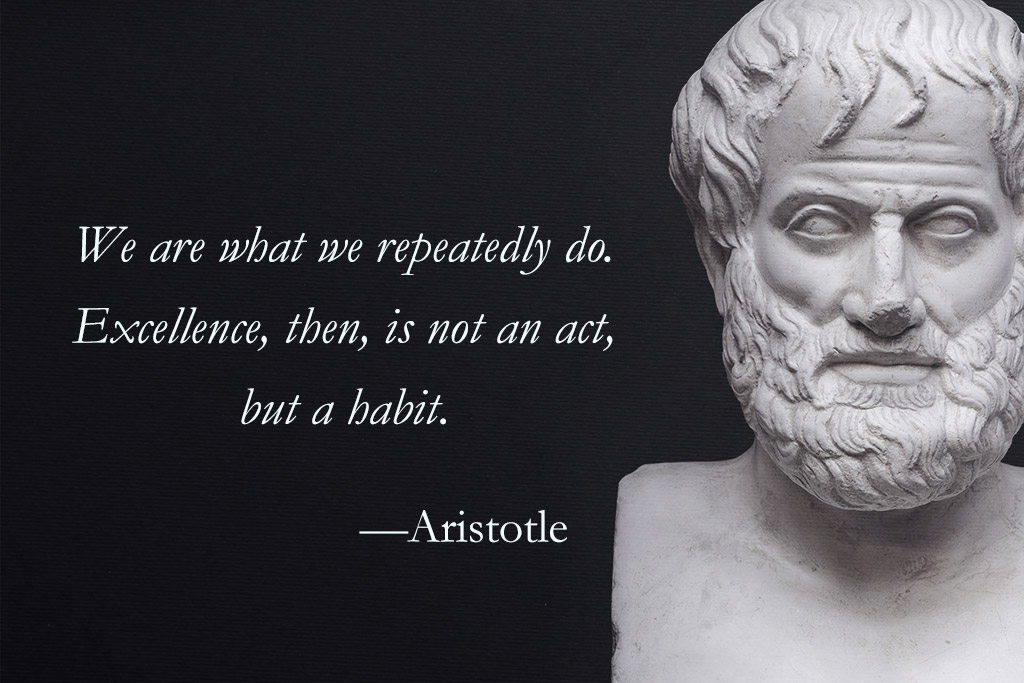If we say we are a writer, but we do not write every day, we are not a writer.
If we say we are kind, but we treat people thoughtlessly and commit a thousand small, unintentional cruelties, we are not kind.
If we say we are open and honest, but present a glittering facade on social media while we are dying inside, we are not open and honest.
“We are what we repeatedly do,” said Aristotle nearly 2,400 years ago. “Excellence then, is not an act, but a habit.”
I’ve known that quote for a long time, but for some reason, have always focused on the second part of it, excellence as habit. I have worked hard over the years at cultivating good habits – eating well, exercising, doing the dinner dishes before I go to bed, having a system to make sure my bills are paid on time, getting myself and my daughters to the dentist every six months like clockwork, keeping healthy snacks in my purse so I don’t get hungry and cranky.
The first part seems like just another way of saying that excellence is a habit, but when I thought of it today – out of the blue, for some reason – it wasn’t in the context of habit formation, but in the context of character, of what kind of people we are. I know that’s how Aristotle intended it, that he was talking about virtue rather than about good habits like brushing your teeth or making your bed. But that’s the way I’ve grown to think about that quote over the years, as a goad to help me form good habits that would make my busy, demanding life more manageable.
But what about excellence as a habit? Am I an excellent person? Am I virtuous? Kind? Honest? A good mother?
The Greeks and Romans evaluated human character in terms of virtue and vice. You are what you do repeatedly: if you do good, you are good. In the Judaeo-Christian tradition, not so much. “Behold, I was shapen in iniquity; and in sin did my mother conceive me,” laments the author of Psalm 51. Without God’s grace, you can do good all the livelong day, but you’re still an unworthy creature.
Evolutionary biologists come at the question from a different angle, seeing selfishness and altruism as traits that evolved for specific evolutionary reasons, so it’s natural that human behavior would be a tangle of good and evil, fueled by impulses toward altruism and selfishness so deeply embedded in our genes that we are often not conscious of them.
Different philosophies of human nature aside, both religious fundamentalists and evolutionary biologists would probably agree that despite the constraints of our nature (whether God-given or evolved), we can make ourselves better or worse by what we do. Neuroscience confirms it. Kindness and gratitude can actually rewire our brains.
I could have told you that without an fMRI, I can almost hear Aristotle sigh.


1 Comment. Leave new
[…] gap, that yawning chasm between ought and is that we can usually only bridge by creating habits that […]